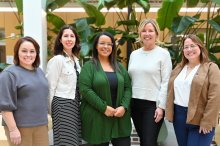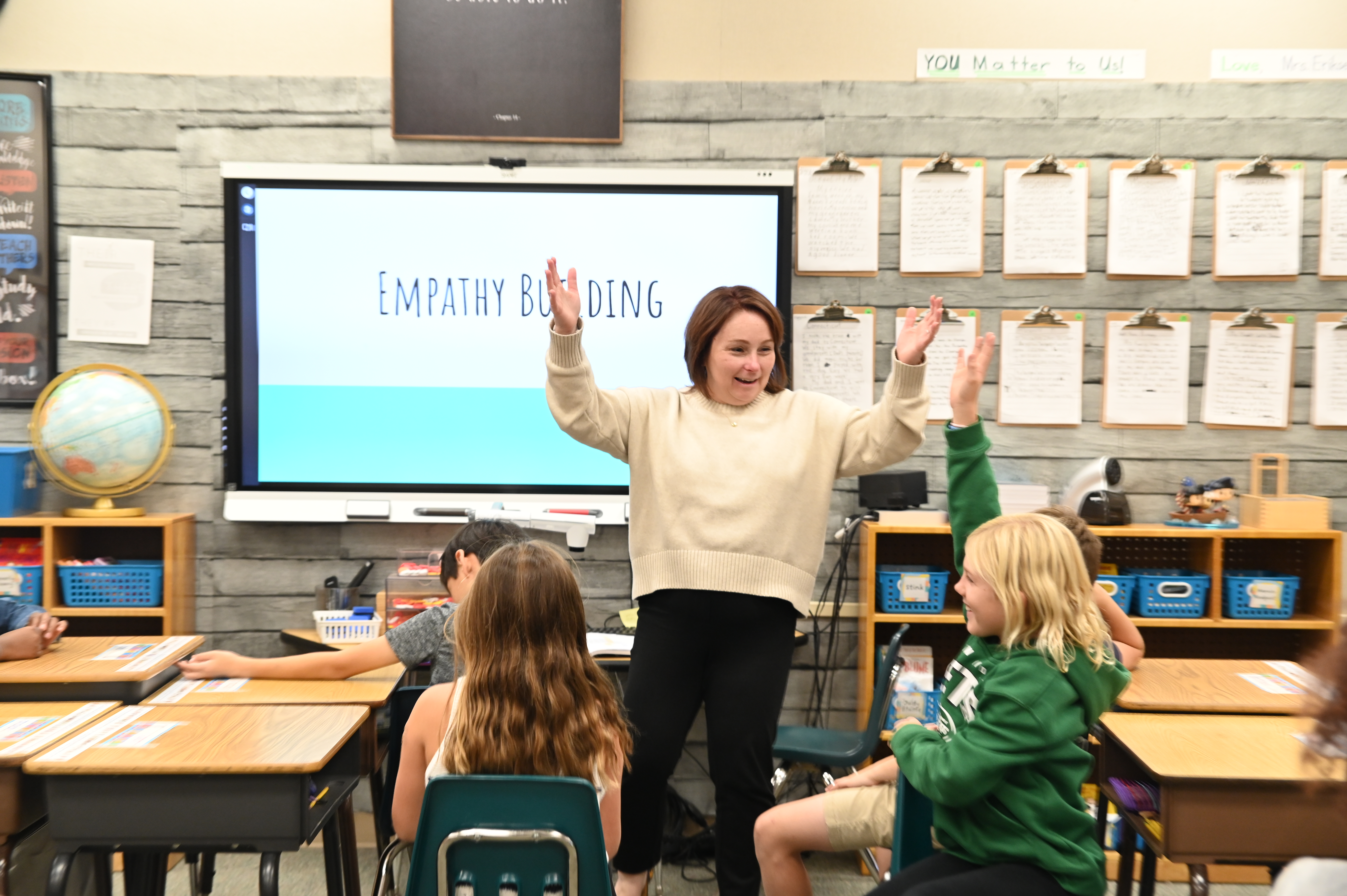
By Dr. Amy Cuddy, Social EMOTIONAL LEARNING Department Chair, Psychologist
A walk through the halls of Tower Hill offers familiar scenes: students with noses in books envisioning classic storylines or calculating mathematical equations; artists at work brandishing brushes, clay, sandpaper or cameras; goggle-clad scientists analyzing unknown substances or calculating pendulum arc; and, musicians and thespians experimenting with verse, song, set design or monologue. What might be less familiar are images of Tower Tots and prekindergarteners practicing their breathing skills with stuffed animals on their bellies or Hoberman spheres in their hands, second graders crafting recipes for “Friendship Soup” to delineate the desirable qualities of a friend, fifth graders playing Jenga to evaluate decision-making skills, or tenth graders playing a blackjack-like game to assess the inherent risks of addiction. This is Social Emotional Learning, or SEL.
Once viewed as fringe or ancillary to traditional academic work, a focus on SEL has now become common practice at Tower Hill. Responding to post-COVID realities and the ongoing mental health crises impacting our nation’s youth, SEL has been centered as an academic department on equivalent footing with its more traditional peers, affirming the school’s commitment to both the explicit instruction and implicit interweaving of core SEL competencies into the fabric of our school community. SEL has taken center stage in both didactic and practical efforts to ensure student engagement and promote a positive school climate.
SEL is defined by the Collaborative for Academic, Social, and Emotional Learning as “the process through which all young people and adults acquire and apply the knowledge, skills and attitudes to develop healthy identities, manage emotions and achieve personal and collective goals, feel and show empathy for others, establish and maintain supportive relationships and make responsible and caring decisions.”
Tower Hill adheres to a skills-based model of SEL instruction that is focused on five core competencies: self awareness, self management, social awareness, relationships skills and responsible decision making. In each division, students participate in both standalone and integrated SEL offerings, such as Health and Wellness classes, mindfulness work that includes breathwork or noticing thoughts and reorienting focus, advisory conversations and peer leadership activities. The SEL curricula, programs and initiatives ensure that students acquire the essential social and emotional skills necessary for academic success and personal growth, and the department works collaboratively with various constituencies to make certain all practices and policies are viewed through a SEL lens.
Translating the components of SEL into a dedicated curriculum was the initial task of the nascent SEL department, as team members worked to define a scope and sequence to outline age-appropriate skills and objectives. As the SEL Department is composed of team members with varied backgrounds and specific expertise, this enterprise was infused with rich perspectives from the school’s two psychologists, the school nurse, the Upper School Dean of Students and Tower Hill’s own mindfulness instructor. Working together, this team provides guidance to inform a variety of programming. There are lessons on empathy, emotion regulation and making friends for Lower School. Middle School coursework builds on these skills and expands a variety of topics, such as conflict resolution, values-based decision making, perspective taking and consent. Upper School offerings hone students’ understanding of identity development, risk taking and self care—just to name a few.
Alongside the direct programming that occurs in standalone classes, there have also been initial efforts to integrate SEL into the daily aspects of student work. In Upper School, the Wellness Board collaborated with the Teaching and Learning Center to provide students with coordinated academic and emotional support during midterms. Morning mindfulness sessions, evening study hours and post-exam decompression sessions highlighted the importance of balance during periods of potential stress. In Lower School, the fourth grade team encouraged students to create Shop Day products that addressed real-world needs and everyday problems, therefore engaging students’ capacity to consider multiple perspectives and the needs of others. Final results included a User’s Guide to Fourth Grade, the Happy Hillers Project (a combination stress reliever and mindfulness tool) and a flag football belt that reminds players to focus on good sportsmanship. Another project—the Buddy Bench—is even being scaled into application on the playgrounds around school to provide a resource for peers who might need an extra dose of friendship during less structured recess times.
The objective of these collective efforts is to make overt and explicit those competencies that have historically been indirectly addressed by independent schools. We recognize the exponential value of direct instruction in the soft skills that have consistently been identified as correlating to lifelong learning, happiness and success. Research also shows that SEL improves academic achievement, increases prosocial behaviors and bolsters students’ emotional wellbeing. The combination of positive student outcomes, improved interpersonal relationships and connected school communities highlights the value of SEL work and solidifies its inclusion in the core curriculum. By adding SEL to our ABCs and 123s, we will continue to provide a foundation for a healthy, safe and welcoming learning environment that enhances students’ ability to find success in school and in life.

















